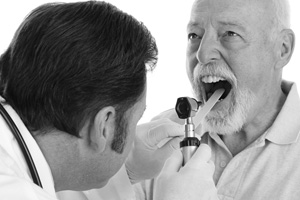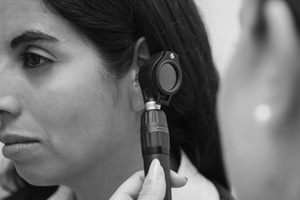View the complete list of conditions
Nasal Septums
During childhood, nasal septums (the bone and cartilage dividing the nasal cavity in the nose) develop over time. The majority of septums depart from the center line of the nose at some point after the age of seven, but are not actually classified as deviated septums until they affect breathing and create real symptoms.
Nasal septa divide the right and left passageways of the nose and play a vital role in breathing. While deviations occur in 80 percent of the population, only a small percentage of those people experience any negative effects. Symptoms of a deviated septum include infections, sleep apnea, facial pain, sneezing, snoring and difficulty breathing and smelling. Deviated septums are often caused by misalignment of nasal septa during development, but deviated septums can also be either caused or worsened by impacts to the face.
Minor cases of deviated septums can be aided by medications including nasal spray, decongestants and antihistamines. However, these act only on sinus congestion--which is made worse by the deviation--not the deviation itself. For serious cases, nasal septum surgery is sometimes required. Balloon sinuplasty and septoplasty operations are the preferred method to fix the underlying deviation, and are minimally invasive procedures.
Luckily, septoplasty and balloon sinuplasty are minor surgeries, often performed as outpatient procedures with local anesthesia. For other deviated nasal septum surgery, including balloon sinuplasty as well as septoplasty, recovery times are excellent. Generally, few post operation complications or procedures are necessary, and little discoloration, swelling or visible signs of the surgery remain within hours of treatment completion. Septoplasty recovery is only slightly more involved than that of balloon sinuplasty, sometimes involving incisions, where balloon sinuplasty does not.
If you believe you may have a deviated septum, Midtown Manhattan deviated septum surgery will help you determine the proper course of action and have you breathing clearly. However, septoplasty and other types of deviated nasal septum surgery aren’t right for every patient, and those with hypertension, bleeding diathesis, or untreated diabetes should be careful when pursuing septoplasty. The surgery is also performed as an approach to hypophysectomy (surgical removal of the pituitary gland) and occasionally to cure chronic nosebleeds.
If you’re a New York resident looking for nasal septum surgery in the form of a septoplasty operation or other procedure, Midtown septoplasty doctors are a convenient option. Midtown Manhattan deviated septum surgery is local, highly professional, and effective. Since consultations are close by, a relaxing recovery at your own home is only a few subway stops away. Midtown septoplasty, done in (nearly) a New York minute, is your ticket to breathing clearly and snoozing soundly, in the city that never sleeps.
Conditions
Ears
Nose
- Ballon Sinusplasty Surgery
- Concha
- Deviated Septum Relief In NYC
- Deviated Septums
- Fixing a Deviated Septum
- Identifying A Deviated Septum
- How Do I Know if My Nose is Broken?
- Nasal Polyps
- Nasal Polyp Surgery
- Nasal Septums
- NYC Nasal Polyp Reduction
- Septoplasty And Turbinate Surgery
- Treating a Deviated Septum
- Treating Nasal Polyps
- Turbinate Reduction
Throat
- Dysphagia
- Leukoplakia Treatments
- Reflux Laryngitis
- Swallowing Disorders
- Treating Anosmia
- Vocal Disorders
Allergies & Asthma
- Dealing With Allergic Rhinitis
- Managing Allergies and Asthma
- How to Allergy-Proof Your Home from Indoor Allergens
Sinus
- Chronic Sinusitis Treatment
- Endoscopic Sinus Surgeries
- Sinus Headache Cure
- Sinus Infection Treatment
- Sinusitis Surgery
- Treating Sinus Infections
Sleep & Snoring
- Diagnosing Sleep Disorders
- Having Trouble Sleeping
- Home Sleep Studies
- Pillar Implants
- Pillar Treatment for Snoring
- Sleep Apnea Conditions
- Sleep Apnea Specialists
- Sleepless in NYC
- Sleep Study Diagnosis
- Can Snoring Cause Health Issues?
- Treating Sleep Apnea
- Treating Snoring
- What is a CPAP Device?





